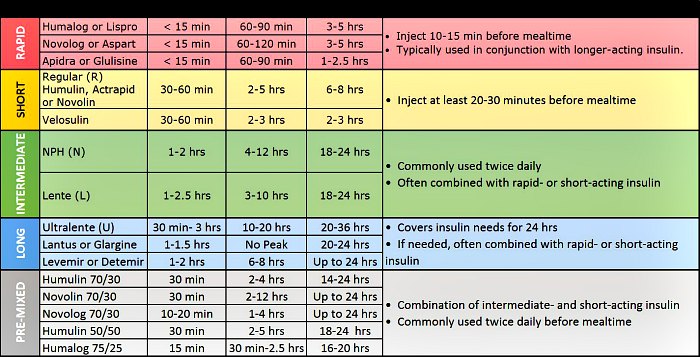Understand the truth about insulin side effects and how to manage them effectively. Low blood sugar, weight gain, skin irritation, and hypoglycemia are common side effects of insulin use. Work closely with your healthcare provider for the best results
Insulin is an essential hormone for regulating blood sugar levels in the human body. It helps to transport glucose from the bloodstream into the cells of the body, where it can be used as a source of energy. However, despite its importance, insulin can also cause a number of side effects, particularly when it is used in high doses or when it is not used correctly.
In this article, we will explore the truth about insulin side effects and provide you with the information you need to know to avoid them. Whether you are taking insulin for the first time or have been using it for years, it is essential to understand the possible side effects and how to manage them effectively.
Understanding Insulin Resistance
Insulin resistance is one of the most common causes of insulin side effects. This occurs when the cells in the body become less sensitive to insulin, making it harder for the hormone to effectively transport glucose into the cells. As a result, glucose builds up in the bloodstream, leading to high blood sugar levels and a number of associated health problems.
Insulin resistance can be caused by a variety of factors, including unhealthy diet, physical inactivity, and certain medical conditions such as obesity and type 2 diabetes. It is important to work with your healthcare provider to identify the underlying cause of your insulin resistance and to develop a plan to manage it effectively.
Common Insulin Side Effects
There are a number of side effects that can be associated with insulin use, ranging from mild to serious. Some of the most common side effects include:
| Insulin Side Effect | Description |
|---|---|
| Low Blood Sugar Levels | Insulin can cause low blood sugar levels (hypoglycemia) if too much is taken or if a meal is missed or delayed. |
| Weight Gain | Insulin can cause weight gain as a result of increased calorie storage and decreased calorie utilization. |
| Skin Irritation | Insulin injections can cause skin irritation and redness at the injection site. |
| Hypoglycemia | Hypoglycemia occurs when blood sugar levels drop too low, and can be caused by taking too much insulin or skipping a meal. |
It is important to be aware of these side effects and to work with your healthcare provider to manage them effectively. With the right care and attention, it is possible to minimize the risks associated with insulin use and maintain good blood sugar control.
Managing Insulin Side Effects
To manage insulin side effects effectively, it is important to work closely with your healthcare provider. They can help you to identify the cause of your side effects and to develop a plan to manage them. Some of the most effective strategies for managing insulin side effects include:
- Adjusting your insulin dose: If you are experiencing low blood sugar levels, your healthcare provider may recommend adjusting your insulin dose to help regulate your blood sugar levels more effectively.
- Eating a healthy diet: A balanced diet that is rich in nutrients and low in processed foods can help to minimize insulin resistance and manage insulin side effects.
- Exercising regularly: Regular physical activity can help to improve insulin sensitivity and reduce the risk of insulin resistance.
- Monitoring your blood sugar levels: Regular monitoring of your blood sugar levels can help to identify potential problems and prevent low blood sugar levels from becoming serious.
By working closely with your healthcare provider and following their recommendations, you can manage insulin side effects effectively and maintain good blood sugar control.
FAQ
The most common side effects include low blood sugar (hypoglycemia), weight gain, skin irritation at the injection site, and fluid retention.
Yes, low blood sugar levels (hypoglycemia) are one of the most common side effects of insulin use.
Yes, weight gain is a common side effect of insulin use. This occurs because insulin helps cells take in glucose, which can then be stored as fat.
Yes, skin irritation at the injection site is a common side effect of insulin injections.
Yes, fluid retention is a potential side effect of insulin use, especially in high doses.
While insulin itself does not directly affect mood, low blood sugar levels (hypoglycemia) can lead to irritability, confusion, and mood swings.
In rare cases, high levels of insulin in the blood over a long period of time can lead to vision changes or eye problems.
Yes, there is a small risk of an allergic reaction to insulin. Symptoms of an allergic reaction include itching, rash, redness, and shortness of breath.
Conclusion
Insulin is an essential hormone that plays a crucial role in regulating blood sugar levels in the human body. However, it can also cause a number of side effects, particularly when it is used in high doses or when it is not used correctly. Understanding the truth about insulin side effects is essential for avoiding them and maintaining good blood sugar control.
Common insulin side effects include low blood sugar levels, weight gain, skin irritation, and hypoglycemia. By working closely with your healthcare provider and following their recommendations, you can manage these side effects effectively and maintain good blood sugar control. Strategies such as adjusting your insulin dose, eating a healthy diet, exercising regularly, and monitoring your blood sugar levels can help to minimize the risks associated with insulin use.
It is important to remember that insulin is an essential hormone that plays a crucial role in regulating blood sugar levels in the human body. By working with your healthcare provider to manage any side effects effectively, you can continue to benefit from the many positive effects of insulin and maintain good health.





